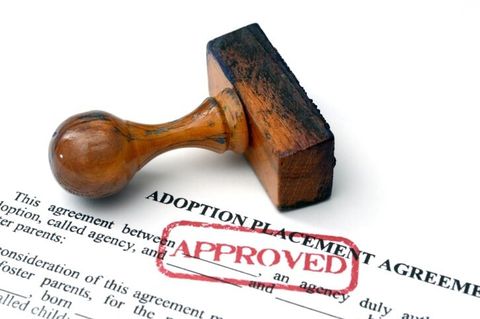Adoption Law Services in Cranberry Township, PA
Legal Steps in the Adoption Process
Within 6 months after filing a Report of Intention to Adopt, the Report of Intermediary must be filed and notice must be given to the adopting parent(s). An intermediary is the party that facilitated the connection between the birth parents and the adoptive parents. It is possible that no intermediary is used, in which case a report is not necessary. The report contains information about the intermediary, the child, placement date, termination of parental rights, monies paid, property owned by the child, compliance with the interstate compact and medical history.

When a parent has evidenced a settled purpose of relinquishing their parental claim or has refused or failed to perform parental duties for a period of 6 months prior to filing a petition;
- When there is repeated and continued incapacity, abuse, negligence, or refusal of the parent has caused the child to go without essential parental care, control, or subsistence and the conditions and causes of incapacity, abuse, neglect or refusal cannot or will not be remedied by the parent;
- When the parent is the presumptive but not the natural father of the child;
- When the child is in the custody of an agency as a result of being abandoned or the whereabouts of the birth parents are unknown;
- When the child has been removed by the court or under a voluntary agreement with an agency for at least 6 months and the conditions that lead to the removal of the child continue to exist and cannot be remedied in a reasonable period of time;
- When, at the birth of a newborn child, the parent knows or has reason to know of the child's birth, does not reside with the child, is not married to the other parent, has failed to make reasonable efforts to maintain contact and substantial financial support of the child for a period of 4 months prior to filing a petition;
- When the parent is the father of a child conceived due to rape or incest;
- When the child is removed due to court order or voluntary agreement with an agency for at least 12 months and the conditions which led to the removal are still present and termination of parental rights would be in the best interest of the child; or
- When a birth parent has been convicted of criminal homicide, aggravated assault, an attempt, solicitation, or conspiracy to commit such offenses in Pennsylvania where the victim is a child of the parent.
Finally, a Petition for Adoption must be filed with the court. The Petition is a legal document that must contain information about the adopting parent(s), the child, and the intermediary. In addition exhibits must be attached including Childline Abuse and State Police clearances, FBI clearances, home study update or post-placement reports if required, original birth certificate of the child, marriage license for the adopting parents as well as marriage and divorce decrees for any prior marriages, the Interstate Compact on the Placement of Children forms if applicable, INS designations for foreign adoptions, the Certificate of Adoption form, certified copies of the termination decree, any consents to adoption, death, certificate of former spouse or natural parent if applicable, and a certificate of counsel outlining counsel fee expenses. The Petition must be presented at which time he court will hear testimony for the social worker who completed the home study and the adoptive parents. The child is usually required to be present, although the child will generally not be asked any questions. At this point the rights of the birth parents have been terminated; therefore, they are not a part of the hearing.
If you are interested in adoption or would like to set up an initial consultation at the Myers Law Group, LLC, call 724-778-8800 or email Jeffrey@jpmyerslaw.com.
-

"I have been represented by several of the attorneys at the Myers Law Firm for various matters. All are knowledgeable, prompt, compassionate and proved to be excellent advocates. I am always confident that, no matter what the issue, I am represented in the best possible manner by the Myers Law Firm."
—Dean D.
-

"Ashley was very professional. She was able to set mind at ease even with something as difficult as my divorce. I felt very comfortable taking this big step in my life in part to Ashley's hard work and knowledge of the law."
—Jason
-

"I used Myers Law Firm for a recent business acquisition. Jeff Myers and team did an excellent job of managing, negotiating and finalizing arrangement. Transition went through quickly and without issue. Their expertise was a vital part to a successful acquisition. Would certainly use Myers Law Firm again for any future legal needs."
—Robb
-

"I cannot say enough good things about Ashley. Professional, caring, and intelligent. She is an amazing attorney and I recommend her highly."
—victoria
-

"I cannot say enough good things about Ashley. Professional, caring, and intelligent. She is an amazing attorney and I recommend her highly."
—victoria
Warrendale, PA 15086
Phone: (724) 778-8800
Email: Info@jpmyerslaw.com

